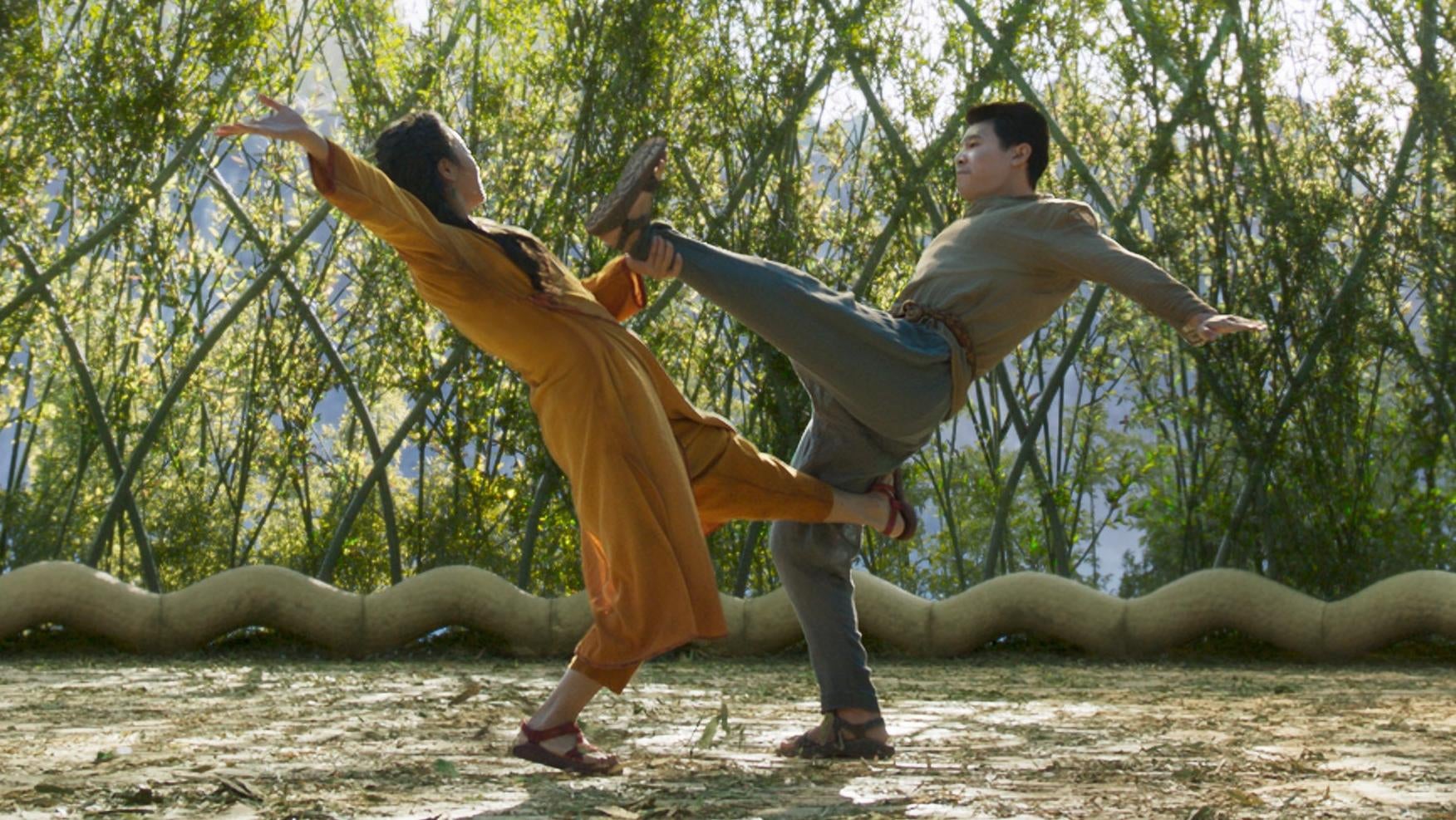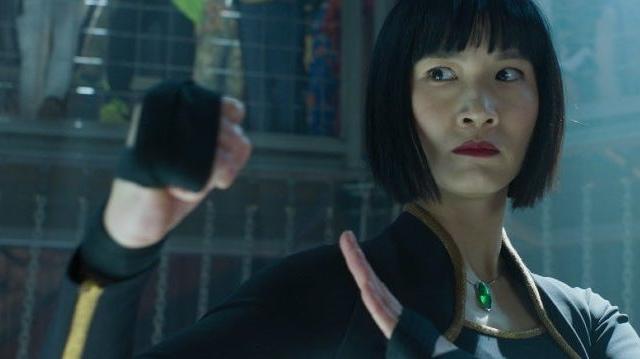The Asian women in Shang-Chi and the Legend of the Ten Rings are some of the fiercest women to ever appear in the Marvel Cinematic Universe. Even though the story centres on Shang-Chi (Simu Liu), the women are just as strong — if not stronger — fighters. Gizmodo spoke with newcomer and Shang-Chi standout Meng’er Zhang and director Destin Daniel Cretton to find out more about the thinking behind one of the movie’s best features.

Where do we begin? Well, Shang-Chi’s mother, Jiang Li (played by Fala Chen), is the first person to beat Xu Wenwu (Tony Leung) in a fight. Though forbidden by her father Wenwu to practice martial arts, Xialing (Meng’er Zhang) trains herself physically and mentally to lead her own underground fighting empire — and kicks her brother Shang-Chi’s arse easily when they first reunite.
Jiang Nan (Michelle Yeoh) acts as our hero’s teacher, demonstrating magical martial arts skills. Katy (played by Awkwafina) discovers her archery powers and shoots an arrow through a demon’s throat at a critical moment in the film.
“It was a natural part of the process to have Shang-Chi surrounded by so many strong women,” director Destin Daniel Cretton told Gizmodo. “I think it naturally grew out of the main drama of this movie being the contentious relationship between [Shang-Chi] and his father, to have him surrounded by women who are not only just supporting characters but are all on their own journeys themselves…Women who are kind of kicking his butt into gear throughout the movie just felt right.”

Not only are they the strongest fighters, the women of Shang-Chi also call out sexism on screen. When talking about Wenwu to Katy (Awkwafina), Xialing says “just nod, don’t talk and he’ll forget you’re there, that’s how I survived.” In another scene, Jiang Nan (Yeoh) contrasts Xialing’s mother’s village to her father’s compound, telling Xialing that here, “we train as equals…you’ve been in the shadows long enough.” To those who’ve followed Yeoh’s career, it should probably come as no surprise to learn that scene between Nan and Xialing actually came from her.
Cretton told Gizmodo, “When Michelle Yeoh showed up in Sydney, she had been digesting the script and said it didn’t make any logical sense to her why she wouldn’t have a moment with Xialing, empowering her to step out of the shadows for the first time. So once she had that idea, we wrote up that scene and it became a big part of Xialing’s journey.” He added: “I mean this is the Shang-Chi movie, but if you do watch it from Xialing’s perspective I think you are also seeing these moments where she is on a similar trajectory and tapping into a power inside her that she didn’t know she had.”
Besides actor Michelle Yeoh bringing her female-empowerment scene to the table, Meng’er Zhang also transformed her character after reading a 2018 Teen Vogue article by Rae Chen on how the trope of the rebellious Asian women with colourful hair is problematic. “Originally my character had some like odd red colour extensions underneath my hair,” Zhang told Gizmodo.
“We have already shot the film for over a month and one day and I just read an article from Teen Vogue. It said how Asian female characters in Hollywood films always have a hint of colour in their hair to show that they are rebels, they are tough, they can fight.” Zhang said she didn’t want Xialing to follow that trend because she felt she was so unique. “So I talked to our director Destin. I asked him if we could take it out, and they supported me and they agreed with me.”
Cretton shared his own version of this exchange with us. “[Meng’er] had sent me this article about how Asian female characters often in movies don’t use their natural hair colour, that characters are often using colour to show that they are rebels or outsiders or whatnot and that itself was contributing to a certain type of stereotype,” he said. “And when she sent that she asked, is it too late to change and to Marvel’s credit, they didn’t blink an eye. We instantly changed her hair from that point moving forward and then went back through the footage and through the magic of the VFX took all of that out.”
By the end of the film, it is clear that Shang-Chi is not the only Asian superhero with a future in the MCU. In one of the studio’s classic post-credit stingers, Wong (Benedict Wong) invites both Shang-chi and Katy to join him for a meeting with Bruce Banner (Mark Ruffalo) and Captain Marvel (Brie Larson). In the other post-credit scene, Xialing has taken over the Ten Rings gang in the compound that once belonged to her father. She trains new women to fight alongside men and has transformed the compound with giant murals of warrior women to reflect her new leadership.
Is she good or is she evil? Only time will tell. When asked about what’s next for Xialing, Zhang sums up her hopes for the future of Asian women in the MCU: “I wish her to stay strong and stay tough and to bring more surprises to the audience.”
Shang-Chi and the Legend of the Ten Rings is now in theatres. No word yet on when Disney will make it available for a wider audience on streaming. You can check out our earlier interview with the director here and read our review here.
